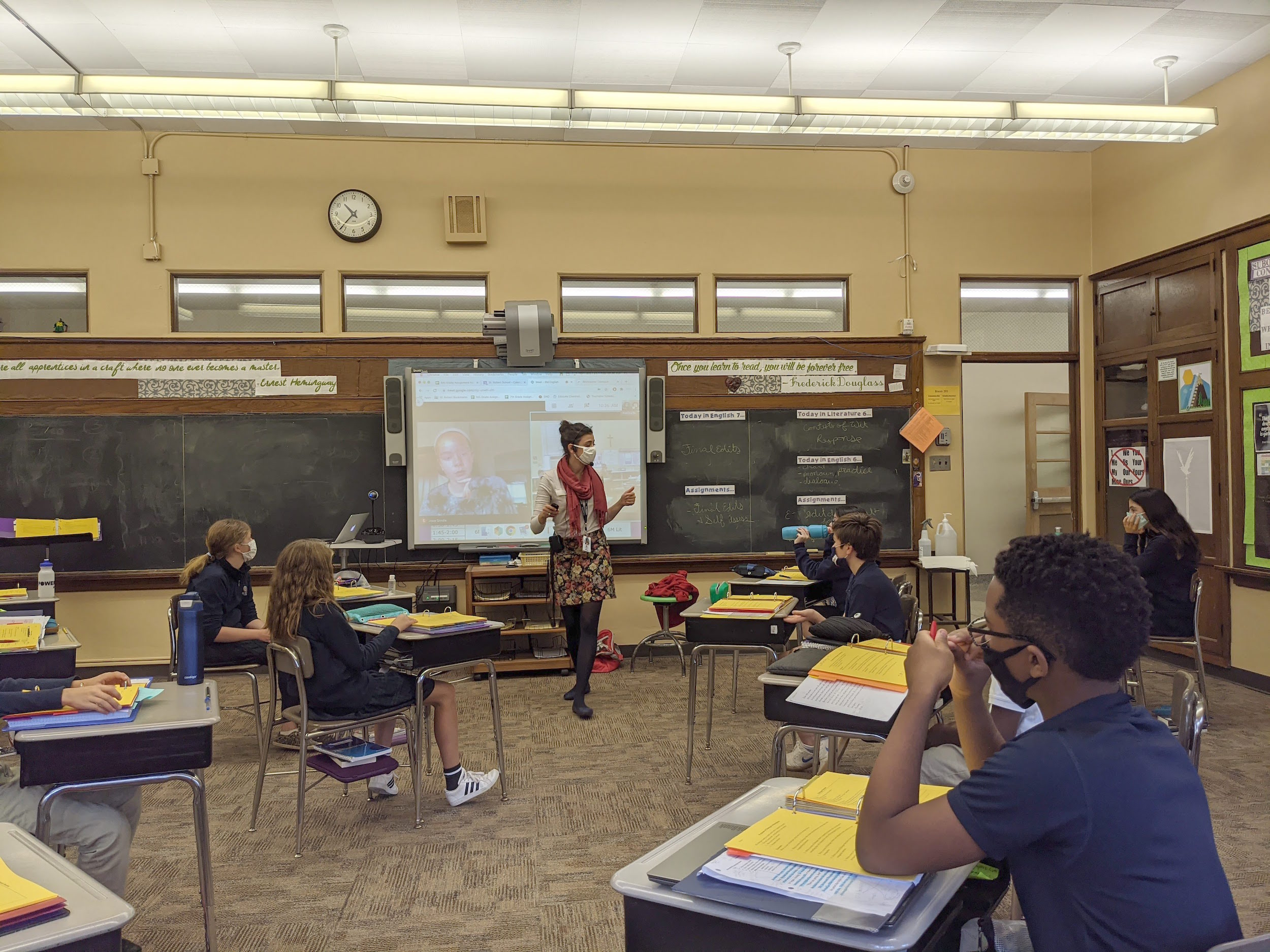
St. Robert School teacher Kathryn DeLapp has had her reflection on teaching during the pandemic featured on the U.S. Department of Education’s website, enabling her to share her story with a national audience. (Submitted photo)
Grace Urbanski admits she was initially surprised to see an email in her inbox from U.S. Department of Education Director of Intergovernmental Affairs Susan Falconer on Oct. 6.
Falconer’s message, sent to school administrators all over the country, was soliciting the submission of essays penned by teachers, parents and students reflecting on their successful transition back to school amidst the COVID-19 pandemic.
Accepted essays would be featured as blogs on the DOE’s Office of Elementary and Secondary Education website, aiming to illustrate, said Falconer, “How they are ‘making it work,’ and how teachers are forever learners continuing to learn and adapt to these new challenges.”
Urbanski, who is in her first year as the principal of Christ King Parish School in Wauwatosa, “jumped at the chance to let the country know how proud I am of Christ King School.”
It was the same for Kathryn DeLapp when her principal Lauren Beckmann forwarded Falconer’s email to the St. Robert Parish School faculty. DeLapp, who teaches middle school English and language arts at the Shorewood school, said she “really absolutely loves this school and I think the work that’s being done in this building is incredible.”
Now, both DeLapp’s and Urbanski’s stories of school in the era of coronavirus are being shared with readers across the nation. The OESE has posted them as part of their “Back-to-School Success Stories” that will serve as a record of what the American classroom looked and felt like during these historic times.
DeLapp’s piece chronicles how she has learned to cope with the roller coaster of technical glitches, unexpected frustrations and hard-won triumphs that come with a hybrid virtual/in-person classroom. Ultimately, she writes, the entire experience has helped her develop as an educator, has made her appreciate the strength of her school community and has caused her to cherish more deeply the moments of success she shares with her students.
“We wear masks, we distance ourselves physically, we sanitize like crazy, we teach students at home and in school simultaneously, and we do find moments of success,” she wrote. “Fortunate to have the opportunity to form bonds and guide student growth in-person, I feel blessed to be teaching right now amidst a community that works together to overcome each obstacle the pandemic dishes out. I love my students, and even on days when I am drowning in a bucket of stress, being in their presence enlivens my spirit and manifests hope for a better tomorrow.”
For her piece, Urbanski drew inspiration from 1 Corinthians 12:12 (“As a body is one though it has many parts, and all the parts of the body, though many, are one body, so also Christ”).
Allowing Christ King to open safely, and to remain open, required the support of every single member of the community, Urbanski wrote. Praising the volunteer-led Christ King COVID-19 Task Force for implementing an effective system of protocols, Urbanski went on to illustrate how the teachers, students and parents have not only survived during this time of transition but thrived.
“As long as we have to follow these protocols, why not find ways to be joyful, and encourage others in the process?” Urbanski told the Catholic Herald. “Following our protocols is a small thing we are doing with great love, and that’s what I hope readers will take away from our piece. We have had three independent cases of COVID-19 at our school, and our protocols have prevented viral spread in the building. That means that only the infected students had to quarantine, while the rest of their classmates could continue to attend in-person school. Not a single other individual contracted the virus while at school; so we know the protocols work. But they’re difficult to follow, five days a week; so we must remind ourselves that the power of Christ’s love allows us to persist in the small things we do — washing hands, wearing masks, remaining distant.”
“Yes, right now is difficult, but everything doesn’t have to fall apart,” said DeLapp. “If we work together as teachers and as communities, we can figure out a way to be successful and to really continue to educate these children, not just in academics but all-around to make them better people. So if today, as a teacher, you didn’t get to the pronouns, it’s not the end of the world, because you still have a kid who is looking at you to figure out what to do next. If you can enliven them with a little bit of joy, it’s going to return to you tenfold.”
To read Urbanski’s and DeLapp’s testimonials, visit https://oese.ed.gov/oese-back-school-success-stories/.
